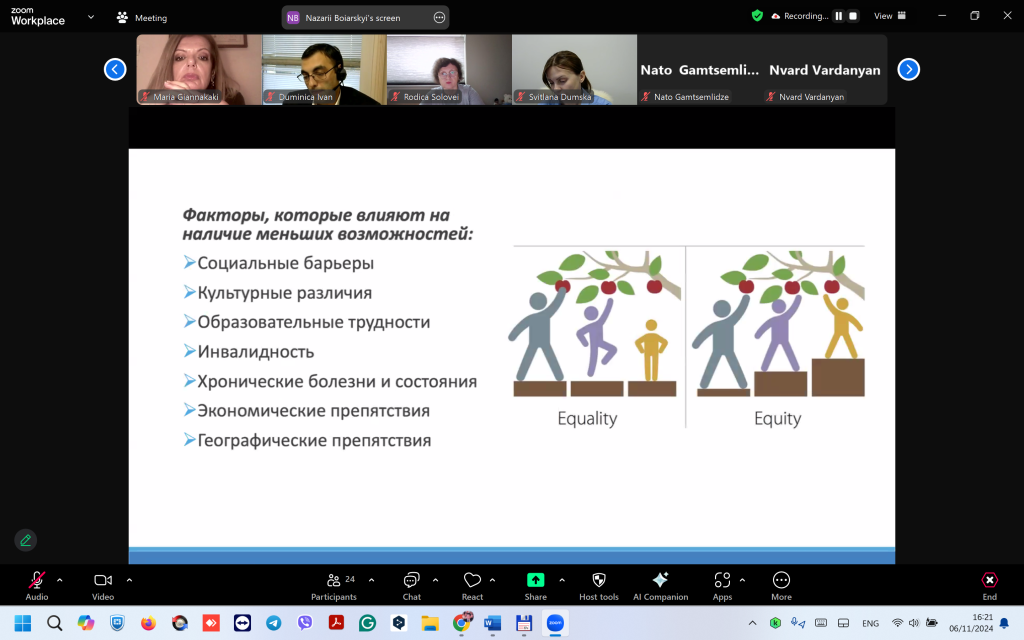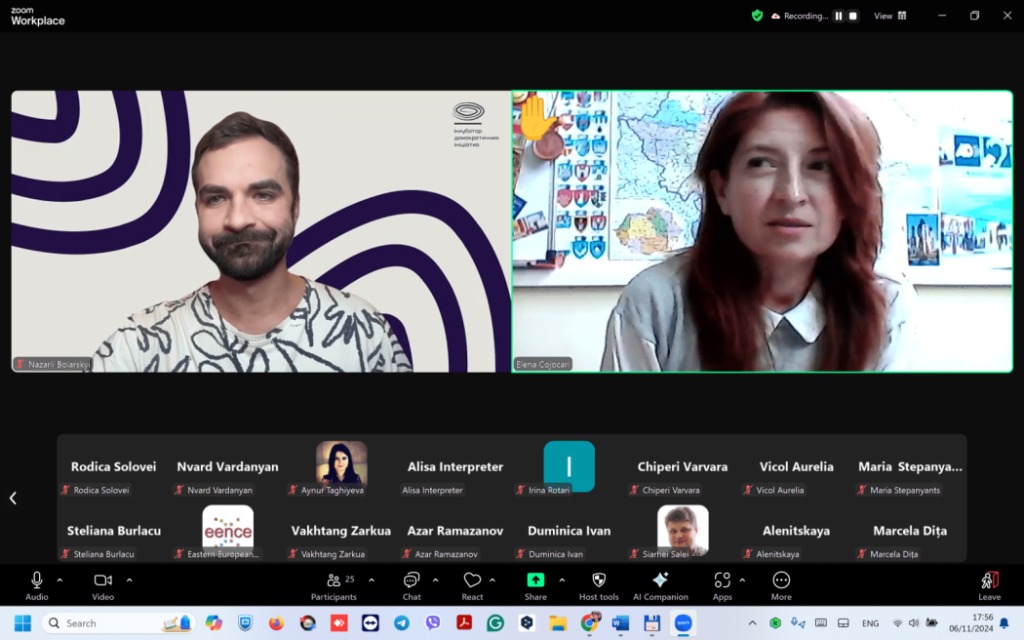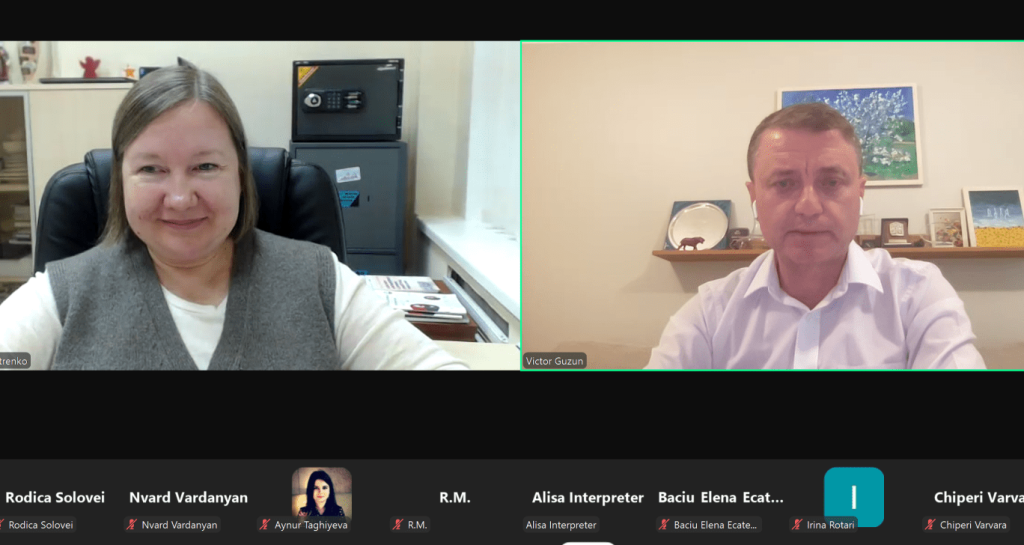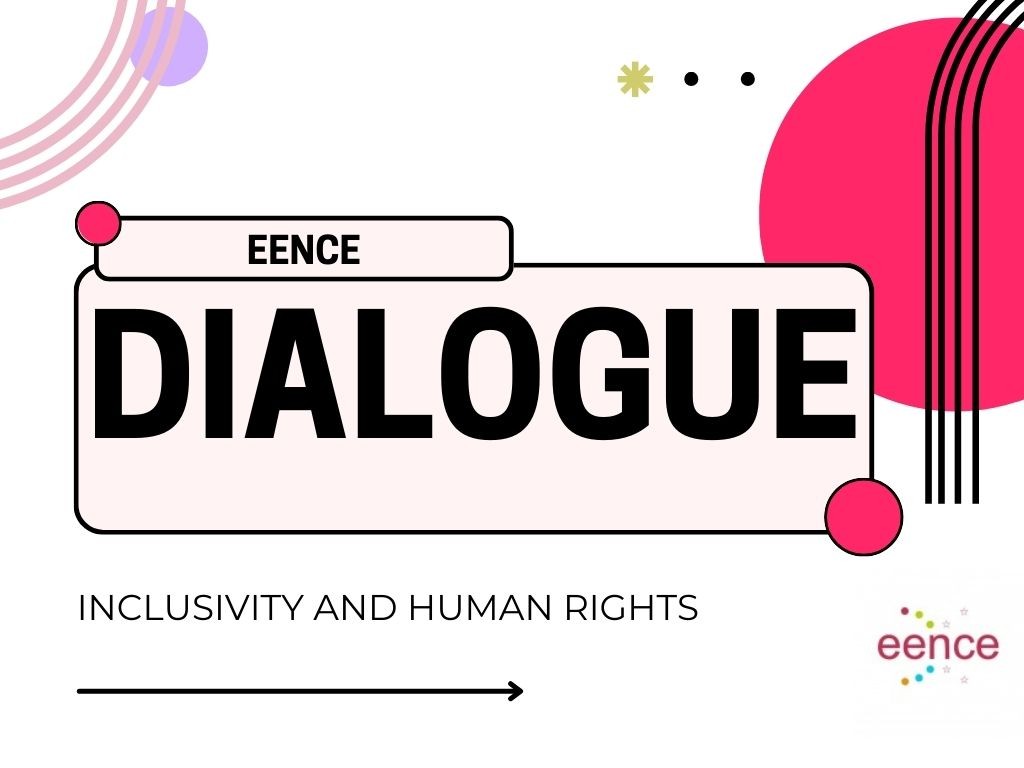How to ensure inclusiveness and protection of human rights in Eastern European countries
This issue was discussed during the final webinar of the EENCE:Dialogue programme on 6 November. It was attended by more than 25 participants from Armenia, Azerbaijan, Belarus, Estonia, Georgia, Germany, Greece, Georgia, the Republic of Moldova, Romania and Ukraine. The discussion focused on the situation in Ukraine and Moldova.
Nazarii Boiarskyi mentioned that although every person has human honour and pride, has rights and responsibilities, history and today’s practice show us that these are often violated or used speculatively. At the same time, he asked how to qualify human rights in the case of aggressors.
Human rights are violated most often during crises and wars and then how to proceed when people lose confidence in these rights. Regarding inclusiveness, this is a process and must be approached from a complex perspective.

Therefore, it is important to include groups of people who have fewer opportunities in all life processes. To succeed in ensuring this right, this process must be planned, included in the sustainable development strategies of our societies and guaranteed through concrete actions, and education remains the essential element of these processes.

Ivan Duminica in his presentation, discussed the situation in the Republic of Moldova regarding the status and rights of minority groups, including refugees from Ukraine.
He mentioned the states duty to prevent and anticipate violations of the rights of every citizen. Similarly, attention was drawn to some essential measures to guarantee the rights and inclusion of minorities, ensuring access to education in their language, knowledge of the history and traditions of minority communities, etc.
A successful example in this regard is the integration of Ukrainian refugees into the Moldovan educational system, the opening of classes teaching in the Ukrainian language, ensuring access to the labour market, etc.
Galyna Petrenko discussed various aspects regarding access to information, the quality of the mass media in our societies, contested histories, and the image of refugees in the new homelands.
Combating stereotypical attitudes that divide societies must be promoted through educational programs and projects. Only by raising awareness of these issues can we build resilience and a culture of tolerance in our countries.

Victor Guzun presented his views on digital citizenship, which refers to responsible, ethical, and informed use of technology by individuals, emphasising their rights, responsibilities, and active participation in digital spaces.
The most important elements of digital citizenship from a human rights perspective:
- Digital Access Ensuring equitable access to digital technologies and the Internet for all individuals, regardless of socioeconomic background, geographic location, or personal circumstances.
- Digital Literacy and Education. Providing education on the use of digital tools, critical thinking, media literacy, and online behaviour.
- Digital Privacy and Data Protection. Safeguarding personal data and ensuring that individuals have control over their digital footprint, including understanding what data is collected and how it is used.
- Digital Safety and Security. Ensuring safe online environments by protecting individuals from threats such as cyberbullying, hacking, and online harassment.
- Digital Rights and Freedom of Expression. Guaranteeing the right to express opinions and access information online, within the boundaries of responsible digital behaviour.
- Digital Responsibility and Ethical Use. Promoting responsible behaviour online, such as respecting others rights, intellectual property, and ethical considerations.
- Digital Health and Well-being. Supporting the physical and mental well-being of individuals engaging in digital spaces, including encouraging balanced use of technology.
- Right to be heard and taken into consideration, including for the development of better policies.
- Right to have equal access to public services.
- Right to vote.
The webinar ended with a round of questions and answers where it was highlighted that in today societies, especially in the context of political, military, economic and digital challenges, there must be a balanced approach in favor of people, tolerance and respect for human rights, regardless of their ethnicity, gender, identity, etc. but, in order to achieve these aspirations, it is necessary to promote civic education, social and political responsibility.
EENCE Dialogue is organised by the Eastern European Association for Citizenship Education with the support of the Federal Agency for Civic Education (bpb) with funds from the German Ministry of Foreign Affairs.


